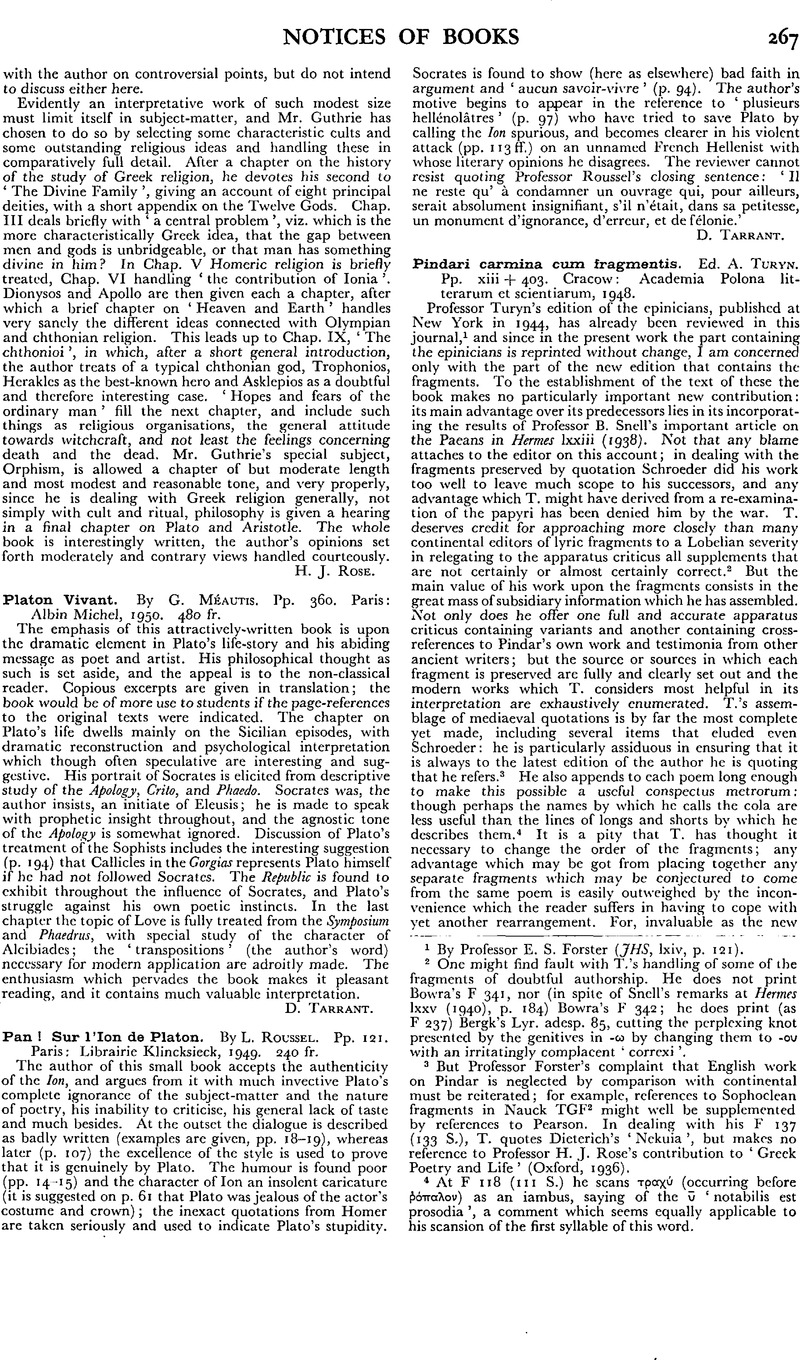No CrossRef data available.
Published online by Cambridge University Press: 23 December 2013

1 By ProfessorForster, E. S. (JHS, lxiv, p. 121).Google Scholar
2 One might find fault with T.'s handling of some of the fragments of doubtful authorship. He does not print Bowra's F 341, nor (in spite of Snell's, remarks at Hermes lxxv (1940), p. 184Google Scholar) Bowra's F 342; he does print (as F 237) Bergk's Lyr. adesp. 85, cutting the perplexing knot presented by the genitives in -ω by changing them to -ου with an irritatingly complacent ‘correxi’.
3 But Professor Forster's complaint that English work on Pindar is neglected by comparison with continental must be reiterated; for example, references to Sophoclean fragments in Nauck TGF2 might well be supplemented by references to Pearson. In dealing with his F 137 (133 S.), T. quotes Dieterich's ‘Nekuia’, but makes no reference to ProfessorRose's, H. J. contribution to ‘Greek Poetry and Life’ (Oxford, 1936).Google Scholar
4 At F 118 (111 S.) he scans τραχύ (occurring before ῤόπαλον) as an iambus, saying of the ῦ ‘notabilis est prosodia’, a comment which seems equally applicable to his scansion of the first syllable of this word.